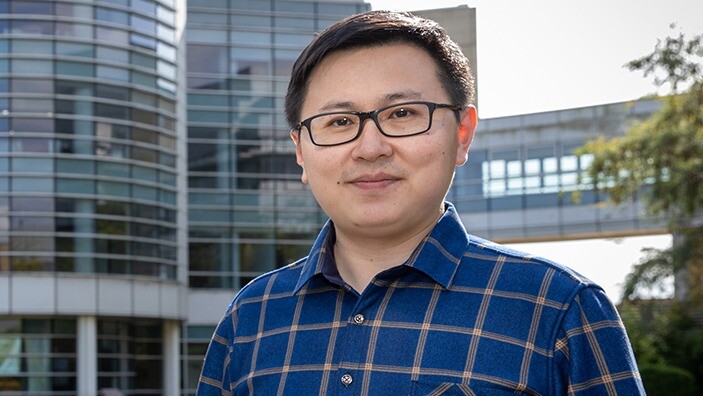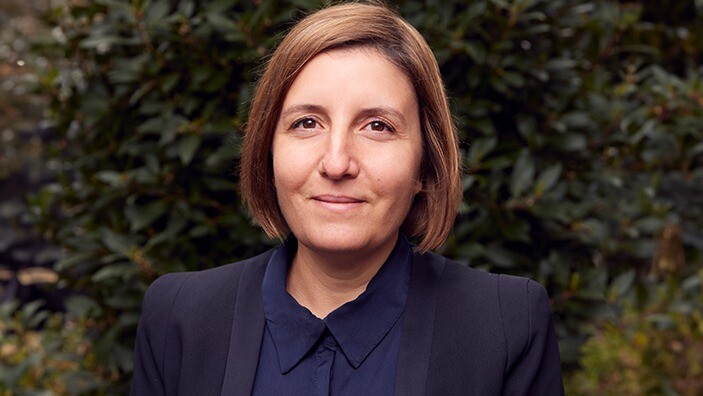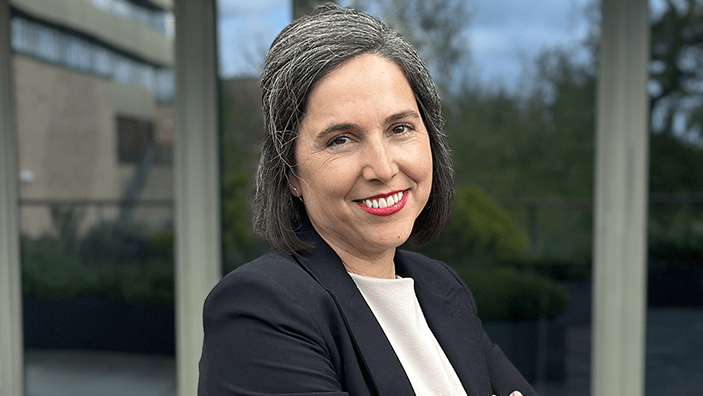According to Cancer Research UK, someone in the UK is diagnosed with cancer every 2 minutes. Time is precious for cancer patients, so every new potentially life-saving medication is welcomed.
We talked to the founders of startups BioMavericks, Spirea and Vector Bioscience to find out how are they tackling the disease – from early diagnostic technology to developing cancer therapeutics.
All 3 ventures have previously been on the Accelerate Cambridge programme, run by the Entrepreneurship Centre at Cambridge Judge Business School.
Developing blood tests that can detect an early-stage cancer

Founded in 2021 by Dr Andrew Guo, BioMavericks is developing an early cancer detection technology. The main focus is on lung cancer, but the technology is designed to detect a wide range of cancers.
“Our technology is based on a simple blood test that leverages the unique immune response correlated with cancer progression. This blood test measures selected mRNA (messenger ribonucleic acid) targets through multiplex quantitative PCR (polymerase chain reaction), providing a highly sensitive and specific method for detecting cancer,” Andrew said.
Currently BioMavericks is collaborating with hospitals in India for pre-clinical trials and is also partnering with one of the NHS Foundation Trusts in the UK for an upcoming clinical study.
The idea for the venture originated from Andrew’s academic background in cancer research, from his masters studies at the University of Manchester, PhD studies at the University of Hong Kong, and postdoc training at the University of Cambridge.
Andrew, who is based in London, joined the Accelerate Cambridge programme in September 2021, where he met his co-founder Cathy Gu.
Using algorithms to identify cancer biomarkers from 13,000 blood samples
They developed algorithms using public sequencing data from more than 13,000 patient blood samples across 20 different cancer types. This data helped to determine the biomarkers with the highest sensitivity and specificity.
Andrew said Accelerate Cambridge played a crucial role in validating their ideas, technical development and collaboration.
“Networking sessions with past and current cohorts provided insights into the startup journey, highlighting avoidable pitfalls and fostering resilience in the face of adversity,” he says.
Developing the next generation of targeted cancer treatment

Founded by Dr Myriam Ouberai, Spirea is on a mission to advance a new generation of antibody-targeted cancer treatments with better efficacy and safety. The Cambridge-based company has developed a technology that allows more cytotoxic drug to be attached to the targeting antibody which means more drug is delivered to the cancer cell, according to Myriam.
“By delivering the right amount of the right drug to the right cells, Spirea’s technology will unlock a new generation of accessible, powerful, and well-tolerated medicines for the treatment of a wide range of cancers,” Myriam said.
Targeting breast, prostate and ovarian cancer with new drug delivery technology
The team is planning to tackle breast cancer, prostate cancer and ovarian cancer first. Currently the drug is in pre-clinical stage with the aim to start clinical trials at the end of 2027 and hoping to get approval within 5 years after that.
Myriam was working as a Senior Research Associate at the University of Cambridge Nanoscience Centre. She was working on a project that aimed to improve the delivery of antibiotics to infected cells and this led to the development of the drug delivery technology behind Spirea.
“I was interested in the potential to commercialise this technology and I wanted to apply the idea in cancer treatment,” Myriam says.
She joined the Accelerate Cambridge programme in April 2014 and says it was a great platform to start a business. “During the programme, I have had great advice on what questions I should ask, what should I be doing next to grow a successful business and where to get funding.”
Employing machine learning to target hard-to-treat cancers

Vector Bioscience, is a Cambridge-based startup developing a machine-learning empowered drug delivery system. The current focus is on hard-to-treat cancers such as pancreatic cancer and lung cancer, and to then apply the technology to other cancers as well as outside of oncology.
Vector Bioscience has developed an advanced nanoshuttle drug delivery platform that offers precision in targeting tumours by protecting, encapsulating and transporting oncology treatments directly to where they are needed, according to Lluna Gallego, Co-founder and Chief Operating Officer.
“Our versatile nanoshuttles can deliver RNA therapeutics, traditional therapies, and their combinations, ensuring stability and targeted delivery. We aim to enhance the performance of oncology drugs, reduce treatment times, and minimise side effects, ultimately improving the quality of life for patients. Vector’s vision is to make cancer therapies more effective and patient friendly.”
How the venture grew from a University of Cambridge lab
Founded in 2021 and based on more than 15 years of research, Vector Bioscience is a spinout company from the University of Cambridge. It all started at the research group of Professor David Fairen-Jimenez (co-founder of Vector Bioscience), the Adsorption and Advanced Materials laboratory. The venture is currently at pre-clinical stage and the team is hoping to submit clinical trials application in 2 years’ time.
Lluna’s background is in international business and management, specialising in business strategy and growth.
“I have created and built projects from scratch and worked to develop, accelerate and strengthen others nationally and internationally. When the opportunity of building Vector from the solid ground of many years of science developed in Cambridge came by, I couldn’t resist.”
In April 2022 Vector Bioscience joined Accelerate Cambridge, of which Lluna says: “It offered a comprehensive overview of all aspects of a business: from the founding documents to the often overseen but key aspect that is the company culture including product development, marketing, and intellectual property.”
How the Accelerate Cambridge programme can help ventures to thrive
At Accelerate Cambridge we support the innovators in the Cambridge ecosystem to navigate early-stage challenges and to help them realise their ventures’ purpose and vision.
Tony Kypreos, Medtech and Sustainability coach, commented:
“At Accelerate Cambridge we support the innovators in the Cambridge ecosystem to navigate early-stage challenges and to help them realise their ventures’ purpose and vision. We do this through carefully curated classes, expert mentors in industry and designated one-to-one coaching.
“In recent years we’ve been delighted to support many talented venture founders in advancing their ideas towards delivering transformative cancer treatments for the patient. These have included BioMaverick, Spirea, Pharmenable, OneTest, Gene.ly and Healark.
The Cambridge accelerator has supported more than 400 startups
Accelerate Cambridge is a startup accelerator programme established at the Cambridge Judge Entrepreneurship Centre in 2012. So far it has supported 405 ventures in various industries such as education, financial services, food industry and construction. Around 30% of the supported startups are in healthcare and the health tech sector. The programme offers a structured approach that combines entrepreneurship training, regular coaching and mentoring, as well as access to shared workspace.
Related content
Cambridge is changing the story of cancer
This year we’ve been highlighting cancer-related news and stories from Cambridge Judge Business School as part of a University of Cambridge-wide campaign, Cambridge is changing the story of cancer.





